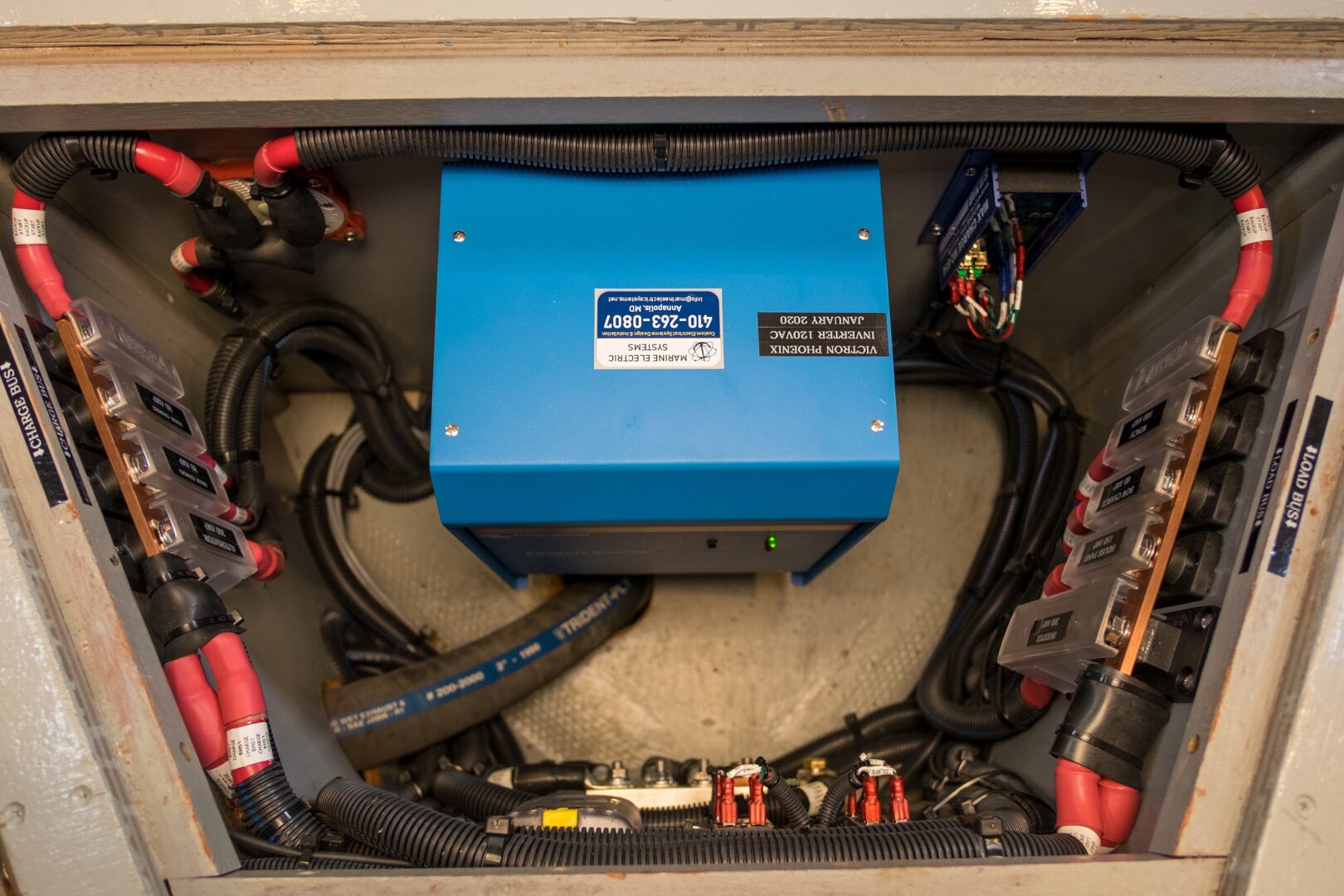
Here are some maintenance tips to keep your boat’s electric system functioning.
Marine environments subject electrical components like switches and wires to extreme heat, corrosive chemicals, and constant vibration, pounding, and movement.
Because of these detrimental factors, marine electrical systems are susceptible to all sorts of failures, some of which can be extremely dangerous. With that said, it’s essential to protect your boat and its electrical system from the harmful effects of the ocean. Here are some electrical maintenance tips to follow on the water to keep yourself safe.
Inspect Your Wiring
Anywhere marine electrical wires are exposed to the environment, they are at risk of failure.
For instance, when wires are exposed to the air, seawater, and sunlight, it can damage their insulation over time. You should inspect all exposed cables periodically and hire a certified marine electrician to replace them.
One area to pay particularly close attention to is the connections. This is where cables are most at risk of corrosion. Marine-grade battery wire is made of individually tinned copper conductors that are corrosion-resistant. Still, if they do start to oxidize, that corrosion can travel up the wire, underneath the insulation, and cause shorts.
Use Marine-Grade Battery Wiring
When working with a boat’s electrical system, you should only use wire, parts, or components expressly rated for marine use. Marine-grade battery wires and cables are made of very thin copper conductors. A high strand count ensures that the cable remains flexible, and the individual-tinning process helps protect the cable against corrosion.
Also, most marine-grade cables are usually resistant to weather, acids, oil, gasoline, and abrasion, which help protect against chemical damage and chafing.
Check Your Marine Batteries
Some marine batteries are just meant to power the engine, while a separate battery powers the house electronics and trolling motor. Other batteries are dual-purpose, providing starting and cranking power. You need to take good care of your battery to be reliable and always start when you want it to.
Check the battery’s exterior for signs of damage or extreme wear and tear. Also, inspect the cables and wires for rust, fraying, and corrosion. You should replace any damaged cables, but if the terminals or case are damaged, consider replacing the entire battery.
Dirt, acid, corrosion, and other contaminants accumulate on the battery terminals and lead to current leaks. Be sure to clean away deposits on the terminals and then neutralize any acid with diluted ammonia. If there is any grime on the terminals, clean it using water. Remember to rinse and dry the battery before reconnecting it.
Marine Electric Systems, LLC is a Leader In the Maritime Industry
We here at Marine Electric Systems have over 30 years of industry experience. You can trust our team for reliable service and expert craftsmanship in the Maryland, Baltimore, Annapolis, and Baltimore city areas! We’re highly certified and adhere to all ABYC and NMEA regulations. We specialize in top-notch electrical solutions for recreational, commercial, and government boating clients. Anything from electrical refits, to navigation systems, or boating maintenance. To stay up to date on our services, follow us on Facebook, LinkedIn, Pinterest, Instagram, and YouTube. You can also contact us at 410-263-0807.
